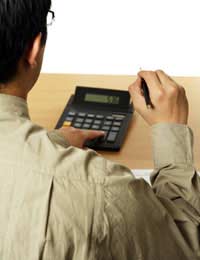Are Social Security Benefits Taxable?

In the British tax system there are two types of income on which you are not required to pay tax. The first of these is known as ‘tax free’, while the second is described as ‘tax exempt’.
Tax free income is available to every taxpayer in the country. This comes in the form of personal allowances; that is, the portion of each taxpayer’s income that falls below the Income Tax and National Insurance threshold and is therefore not taxed. Similarly, some taxpayers may be eligible for relief against their tax bill, most frequently because of business expenses (see our article Allowable Expenses and Deductions on this site).
Tax Exempt Income
Tax exempt income, however, is different. This type of income includes some forms of savings income (for example interest on ISAs and other ‘tax-efficient’ savings vehicles). Importantly, it also includes a number of social security benefits. These benefits can be divided into means tested (that is, dependent on the recipient’s financial circumstances) and non-means tested. Means tested benefits that are exempt from tax include:- Council tax benefit
- Housing benefit
- Income support (with an exception that is listed below)
- Pension credits
- Social fund payments
The list of non-means tested benefits that are exempt from tax is considerably longer, but the key examples of such benefits include:
- Child benefit
- Pensioners’ Christmas bonus
- Disability living allowance
- Maternity allowance (but not statutory maternity payments)
Taxable Benefits
A large number of other benefits, however, are taxable. The list of taxable social security benefits includes:- Statutory maternity pay
- Jobseeker’s allowance
- Retirement pension
- Higher rate incapacity benefit
- Income support, if it is being drawn as a result of a strike or other industrial action
The social security payment that the highest number of people will be required to pay tax on is the Basic State Pension. After this is paid by the government to the pensioner, it is then the responsibility of the recipient to ensure that they pay the correct amount of tax on this payment. Indeed, this is the case for all social security benefits, and so it is important that you are familiar with which of your benefits are taxable and which are not in order that you pay the correct amount to the Inland Revenue.
Payment of Tax
The way in which you pay tax on benefits will depend on how you pay the rest of your tax. If you are already a Self Assessment Taxpayer, you will be required to give complete information regarding your benefit payments on your self assessment. The Inland Revenue will then calculate the amount of tax that you owe. If, however, you pay Income Tax at source through the PAYE System, then it is likely that tax payments on benefits will be deducted from your wage packet in the same way.This is also the case for pensioners who receive both the Basic State Pension and payments from a private or occupational pension scheme; in these instances, the tax payable on your Basic State Pension will be deducted from your private pension payments at source.








